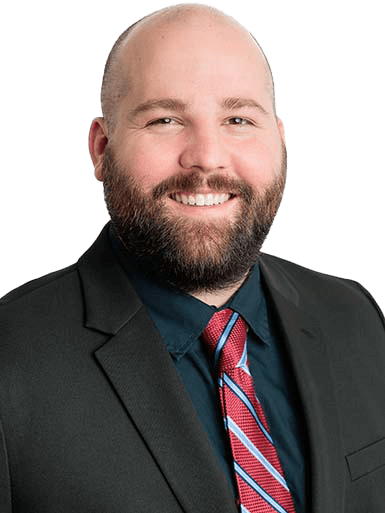Enhancing Reporting Capabilities With Integrated Systems
For CFOs and financial leaders within the Health and Human Services sector, the challenge of managing and reporting on diverse programs funded from various sources is a significant one. Accurate and efficient reporting is essential but often hampered by data spread across multiple, disconnected systems. AAFCPAs provides the following guidance on how integrating these systems can significantly enhance accounting and reporting capabilities, providing a comprehensive view of an organization’s operations and financial health.
The Challenge: Siloed Data in Health and Human Services Organizations
Health and Human Services organizations often juggle multiple programs, each funded by different sources and requiring distinct reporting and compliance measures. For example, consumer attendance may be tracked in one system while patient visits are recorded in another. Without integration, the process involved in pulling data together for reporting can be cumbersome, error-prone, and time-consuming.
These disparate systems—including time tracking, electronic medical records (EMR), third-party billing and grant tracking systems—each hold valuable data. However, when these systems do not communicate, they create a fragmented view of the organization, complicating the process of generating meaningful financial and operational insights
System Integration for Human Services: Watch our OnDemand Webinar
Learn how to overcome system integration challenges in health and human services. AAFCPAs’ Robyn Leet, Adam Shuster of Incompass Human Services, and Audit Partner Katie Belanger, CPA, share insights on streamlining billing, ERP, and compliance.
The Solution: Integration for End-to-End Visibility
The solution lies in integrating these systems to provide an end-to-end view of the organization’s operations. Integrated systems can aggregate data from various sources, allowing organizations to pull statistics and financial reports from a single platform and source of truth, thereby streamlining the reporting process.
Key Steps to Effective Integration.
- Determine the System of Record: Not every detail needs to be integrated. It is crucial to decide which system will serve as the primary record and focus on integrating only the data necessary for final reporting. For instance, while detailed patient data can remain within the EMR system, high-level summary information relevant to financial reporting should be integrated into the general ledger (GL). This approach minimizes complexity and reduces the risk of data overload.
- Prioritize Key Data Connections: Integration should be tailored to meet specific reporting and analytical needs. Not all APIs are created equal; therefore, connections between platforms should be established at a level that is appropriate—neither too granular nor too broad. Custom APIs can be leveraged to create solutions that meet the specific requirements of the organization.
- Ensure Data Reconciliation: To maintain data accuracy and integrity across systems, reconciliations should be performed regularly. For example, discrepancies often arise between the donation platform and the GL due to timing differences in recorded donations versus received funds. Implementing controls and reconciliation processes can help ensure consistency and accuracy across platforms.
- Adopt a Big-Picture Approach: For systems with a high volume of transactions, such as EMR, a line-by-line reconciliation may not be practical. Instead, a summarized approach with allowances for minor discrepancies may be more efficient. The focus should be on ensuring that the overall financial picture is accurate rather than getting bogged down in transaction-level details.
Leveraging Technology for Improved Reporting.
- Use ERP and EMR Integration: Many Enterprise Resource Planning (ERP) platforms now offer connectivity to EMR systems, enabling the automatic batching of entries for seamless integration. This functionality simplifies the consolidation of financial data with operational metrics, making it easier to generate comprehensive reports.
- Use Statistical Accounts for Metrics: Non-financial accounts can be used to track key performance indicators (KPIs) and metrics, which can then be displayed on dashboards and used for decision-making and grant reporting.
- Integrated CRM for Grant Management: A centralized CRM system can track the lifecycle of grant proposals, from submission through funding, without the need for redundant data entry. This integration streamlines the grant management process, providing transparency and efficiency.
- Project and Grant Modules: These modules can consolidate all relevant information related to grants, such as billing schedules, restrictions, and demographic data. Automated drawdowns on restricted funds based on tracked billable expenses can further enhance efficiency.
- Centralize Reporting Requirements: By considering all the information required for grant and compliance reporting, organizations can design their integration processes to ensure that all necessary data is captured and easily accessible. Working backwards from reporting needs can help identify integration requirements and streamline the entire reporting process.
Real-World Impact: Faster and More Accurate Reporting
Example 1: Streamlining Grant Reporting and Attendance Tracking with ERP Implementation
A human services organization struggled to report on grant requirements, tracking attendee data manually and reentering it later, causing delays. They adopted a new ERP system using statistical accounts to automate this process and generate invoices with saved rates. This also enabled them to track attendance trends efficiently.
Example 2: Enhancing Grant Tracking and Reporting with Integrated CRM and Grant Management System
One organization had difficulty with grant tracking and reporting due to manual data entry errors and the use of numerous, unlinked spreadsheets. By adopting an integrated CRM and grant management module, they streamlined processes, cut down on manual work, and improved accuracy. This system tracked reporting needs at the grant level and allowed all general ledger activity to be coded and reported directly per invoicing timelines. As a result, the organization could concentrate more on strategic decisions rather than administrative duties.
For CFOs in the Health and Human Services sector, integrating systems is no longer a luxury but a necessity. By strategically integrating various systems and focusing on what truly matters for reporting, organizations can enhance their financial and operational visibility, leading to better decision-making and improved outcomes. The future of effective financial management in this sector lies in the power of integration—bringing together the pieces of the puzzle to form a complete and coherent picture.

How We Help
AAFCPAs is deeply immersed in serving the health and human services sector. We understand programs and operations, funding and reporting requirements, and the frustrating challenges with systems. Several of our complex, multi-service agency clients are solving the above challenges by leveraging our in-house Business Process & IT Consulting practice, which works with clients to conduct assessments, system selections, and implementations. We manage the end-to-end process on our clients’ behalf, advising on effective solutions for common and unique challenges and offering an unbiased, third-party perspective. Our comprehensive documentation covers everything from Business Process Assessments to Requests For Information and demo scenarios tailored to your needs. We stay informed on the latest systems along with the best options available, skilled in conducting thorough team discovery sessions. Our long-term partnerships with leading software vendors help us provide the most informed guidance, offer leverage during price and term negotiations, and promote a smooth transition. We serve as project managers on your behalf, guiding the process and ensuring tasks are completed on time and to your satisfaction.
If you have questions, please contact Robyn Leet, Partner, Business Process Assessments & Attestations at 774.512.4010 or rleet@nullaafcpa.com, Stuart Karas, Senior, Systems and Process Optimization Consultant at 774.512.9095 or Katie Belanger, CPA at 774.512.4033 or kbelanger@nullaafcpa.com—or your AAFCPAs Partner.



